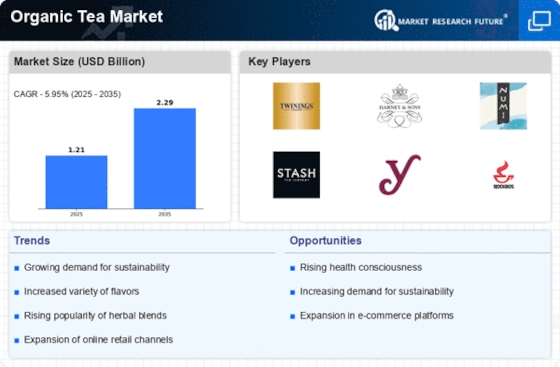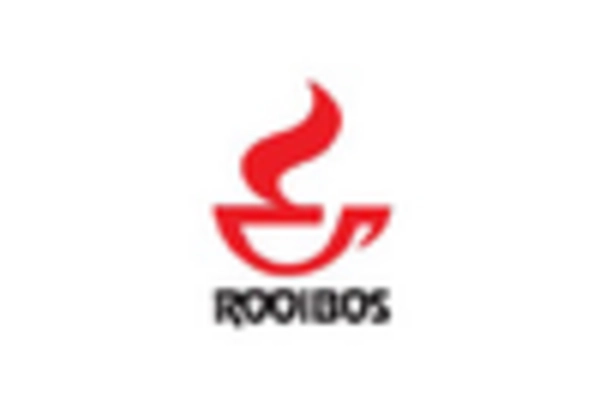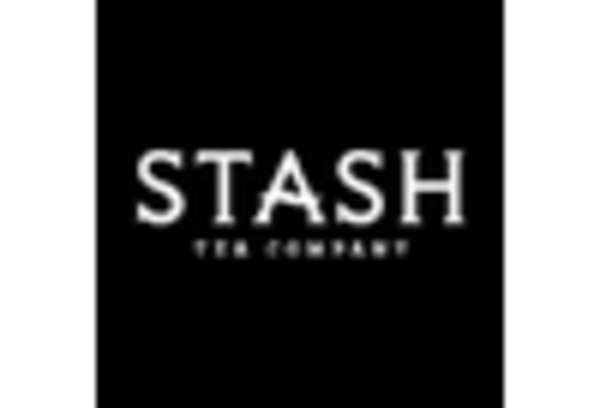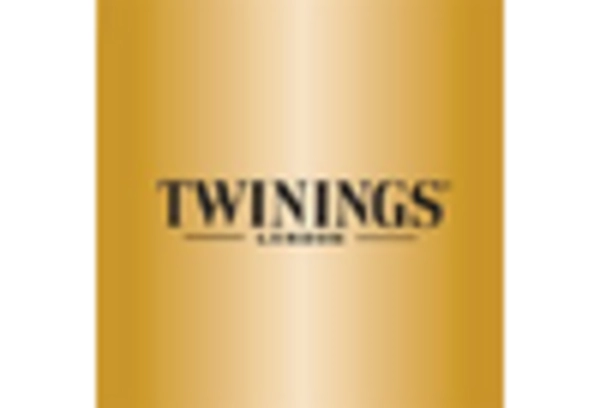Market Trends
Key Emerging Trends in the Organic Tea Market
The Organic Tea Market is experiencing notable trends that reflect a growing consumer inclination towards healthier and sustainable beverage choices. One prominent trend is the increasing demand for organic tea products. As consumers become more health-conscious and environmentally aware, there is a growing preference for teas produced without synthetic pesticides, fertilizers, or genetically modified organisms. Organic certification assures consumers of a cleaner, more natural product, driving the expansion of the organic tea market globally.
Health and wellness considerations are paramount in shaping the Organic Tea Market. Consumers are seeking functional beverages that not only provide a refreshing taste but also offer potential health benefits. Organic teas, often rich in antioxidants and free from harmful residues, are positioned as a healthier alternative to conventional teas. This health-driven trend aligns with a broader movement towards preventive healthcare and a desire for natural remedies.
Sustainability is a key factor influencing the Organic Tea Market. Consumers are increasingly concerned about the environmental impact of their choices, prompting a shift towards sustainable and eco-friendly products. Organic tea cultivation typically involves practices that prioritize soil health, water conservation, and biodiversity, contributing to a more sustainable agricultural system. This trend extends beyond the product itself to include eco-friendly packaging and fair trade practices, as consumers seek holistic sustainability in their purchasing decisions.
The diversity of tea offerings is expanding, driven by consumer demand for unique and innovative blends. Organic tea manufacturers are responding by introducing new flavors, herbal infusions, and functional varieties. From herbal teas designed to promote relaxation to blends infused with exotic fruits and spices, the market is witnessing a surge in creative formulations that cater to diverse tastes and preferences. This trend reflects consumers' desire for a personalized and experiential approach to tea consumption.
The e-commerce boom is reshaping the distribution landscape of the Organic Tea Market. Online platforms provide consumers with convenient access to a wide range of organic tea products, enabling them to explore and purchase from the comfort of their homes. This trend is particularly significant in reaching a broader audience, including health-conscious individuals who may not have easy access to specialty organic stores. As e-commerce continues to thrive, the organic tea market benefits from increased visibility and market penetration.
Social responsibility and ethical sourcing are gaining prominence in the Organic Tea Market. Consumers are increasingly interested in the social and ethical practices of tea producers, including fair wages for workers and community development initiatives. Brands that prioritize transparency and ethical sourcing are gaining consumer trust and loyalty. This trend reflects a broader movement towards conscious consumerism, where purchasing decisions are influenced not only by product quality but also by the ethical practices of the brands behind the products.
The market is witnessing the integration of organic tea into various food and beverage applications. Organic tea extracts and flavors are being incorporated into products such as kombucha, energy drinks, and desserts. This diversification of organic tea applications highlights its versatility and adaptability to evolving consumer preferences. As consumers seek healthier alternatives across a range of food and beverage categories, organic tea continues to find innovative applications beyond traditional brewing.



















Leave a Comment